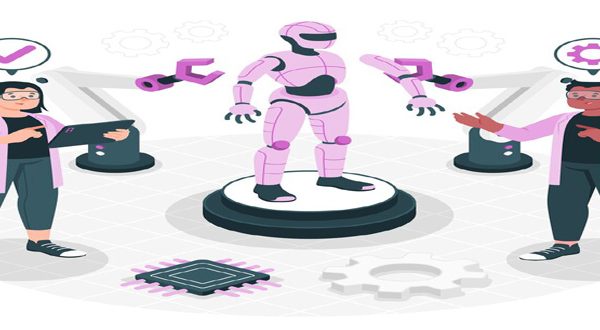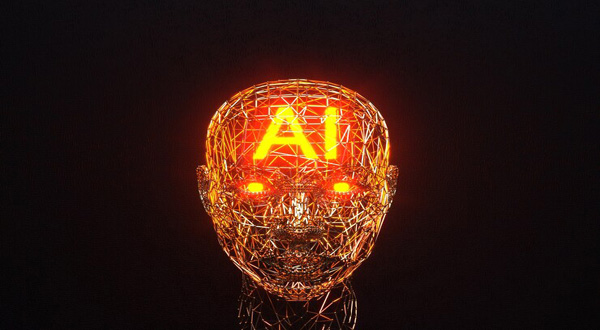The Importance of Artificial Intelligence: A Revolution in Progress
- Update Time : Monday, March 11, 2024
- 12 Time View

Introduction
The Importance of Artificial Intelligence: A Revolution in Progress: In today’s world, where technology shapes our lives in ways we couldn’t have imagined just a few decades ago, the importance of artificial intelligence (AI) cannot be overstated. From powering virtual assistants to revolutionizing industries like healthcare and finance, AI is the driving force behind many of the innovations that are shaping our future. But what exactly is AI, and why is it so important? Let’s delve into this fascinating topic and uncover the myriad ways in which AI is changing the world around us.
Table of Contents
| Sr | Headings |
|—–|———————————————–|
| 1 | What is Artificial Intelligence? |
| 2 | The Evolution of AI |
| 3 | Applications of AI |
| 4 | AI in Healthcare |
| 5 | AI in Finance |
| 6 | AI in Education |
| 7 | AI in Customer Service |
| 8 | Ethical Considerations in AI |
| 9 | The Future of AI |
| 10 | Conclusion |
| 11 | FAQs |
What is Artificial Intelligence?
Artificial Intelligence, or AI for short, is the simulation of human intelligence processes by machines, especially computer systems. It encompasses a variety of technologies that enable computers to perform tasks that typically require human intelligence, such as visual perception, speech recognition, decision-making, and language translation.
The Evolution of AI
AI has come a long way since its inception. Initially, AI was primarily focused on rule-based systems and symbolic reasoning. However, with advancements in machine learning and deep learning, AI has evolved to become more adept at learning from data and improving its performance over time.
Applications of AI
AI is being applied across various domains, transforming industries and improving efficiency. From autonomous vehicles and virtual assistants to recommendation systems and fraud detection, AI is revolutionizing the way we live and work.
Read More: The Advantages of Artificial Intelligence for Students
AI in Healthcare
In healthcare, AI is being used to analyze medical images, predict patient outcomes, and personalize treatment plans. AI-powered tools can assist doctors in diagnosing diseases earlier and more accurately, ultimately leading to better patient outcomes.
AI in Finance
In the finance sector, AI is utilized for algorithmic trading, risk management, fraud detection, and customer service. By analyzing vast amounts of data in real-time, AI algorithms can identify patterns and trends that humans might overlook, helping financial institutions make more informed decisions.
AI in Education
In education, AI is transforming the learning experience for students and educators alike. Adaptive learning platforms use AI algorithms to personalize learning paths for students, catering to their individual needs and preferences. AI-powered tutoring systems can provide instant feedback and assistance, enhancing the effectiveness of learning.
AI in Customer Service
AI-powered chatbots and virtual assistants are revolutionizing customer service by providing instant support and assistance round-the-clock. These AI systems can understand natural language and context, allowing them to engage in meaningful conversations with customers and resolve queries efficiently.
Ethical Considerations in AI
As AI becomes more pervasive in our lives, ethical considerations surrounding its use become increasingly important. Issues such as bias in algorithms, data privacy, and job displacement need to be addressed to ensure that AI is used responsibly and ethically.
The Future of AI
The future of AI holds endless possibilities. With ongoing research and development, AI technologies will continue to evolve and become more sophisticated. From personalized healthcare to smart cities and beyond, AI will play a pivotal role in shaping the future of humanity.
Read More: The Pros and Cons of Artificial Intelligence PDF: Exploring the Impact on Everyday Life
Conclusion
In conclusion, the importance of artificial intelligence cannot be overstated. From revolutionizing industries to improving efficiency and transforming our daily lives, AI has become an indispensable part of our modern world. As we continue to harness the power of AI, it’s essential to remain mindful of the ethical considerations and ensure that AI is used responsibly for the betterment of society.
FAQs
What are some examples of AI in everyday life?
AI is prevalent in everyday life, from virtual assistants like Siri and Alexa to personalized recommendations on streaming platforms like Netflix and Spotify. AI is also used in navigation apps, email filtering, and social media algorithms.
How does AI impact job opportunities?
While AI has the potential to automate certain tasks and jobs, it also creates new opportunities in fields like data science, machine learning, and AI development. Upskilling and retraining are essential to adapt to the changing job market influenced by AI.
Is AI biased?
AI algorithms can inherit biases present in the data they are trained on, leading to biased outcomes. It’s crucial to address bias in AI systems through careful data selection, algorithm design, and ongoing monitoring to ensure fairness and equity.
Can AI replace human creativity?
While AI can replicate certain aspects of human creativity, such as generating art or music, it’s unlikely to replace the nuanced creativity and emotional depth that humans possess. Instead, AI can complement human creativity by providing new tools and insights.
How can we ensure ethical AI development?
Ethical AI development requires collaboration across various stakeholders, including policymakers, technologists, ethicists, and the general public. Transparent algorithms, responsible data practices, and diverse representation in AI development teams are essential for building ethical AI systems.
By addressing these FAQs, we can gain a deeper understanding of the implications and considerations surrounding the use of artificial intelligence in our society. As AI continues to evolve, it’s crucial to approach its development and implementation with careful consideration of its ethical, societal, and economic impacts.












